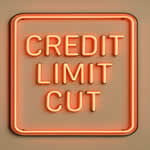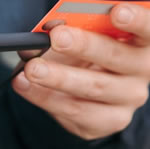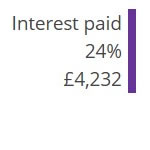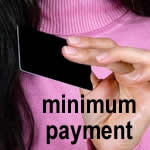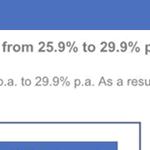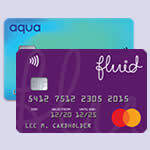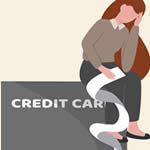Have you had a credit card, store card or catalogue where your credit limit was too high? So high that the monthly repayments were hard to manage and you got into more debt? Many people were originally given an OK limit, but the lender kept increasing it. You may have a good affordability complaint that the lender was irresponsible in allowing you to borrow so much. This applies even if you … [Read more...]
Articles about credit cards
Credit cards can be really useful but they can also be dangerous - if you just tap the card it can be too easy to run up bills that will take you many years to clear. So how can you make the best use of them? The articles here look at
make sure you get the benefits - practical steps you can take so that the banks don't make huge profits from you;
what's new and what's changing with credit cards in Britain?
too much credit card debt - how can you tackle it fast?
Has a lender like Next or Barclaycard cut your credit limit?
When a lender like Next or Barclaycard slashes your credit limit, it can feel like an insult, especially when you’ve been managing your account responsibly. Here are some recent stories I have heard, and a look back at some older examples. These aren't the only two lenders that do this! Next cutting limits This has happened to a number of Next customers recently. In one case, a customer … [Read more...]
Increasing the interest on a credit card – your rights
There are two situations a credit card can increase your interest rate: if the Bank of England base rate goes up and your credit card tracks that rate; or when your credit card decides to increase your interest rate. It is important you know which is happening when your interest rate rises, as in the second case you have the right to reject this change. This also applies to store … [Read more...]
Credit cards – the minimum payment trap
Do you only make the minimum payments on your credit cards? If money is tight, you may feel you can't afford more... But do you know that there is a simple alternative that will speed up debt repayments a lot, not harm your credit record and not cost you any more? Repaying a credit card with minimum payments How long does it actually take? Suppose you buy something that costs £2,500 on a … [Read more...]
“Will a credit builder card improve my score?”
Four million people in Britain have a credit card specifically aimed at people with a bad credit rating. These cards have interest rates of 30-70%. A standard interest rate on a normal credit card is about 20-28%. Brands include Vanquis, Capital One, Aqua, Ocean, Marbles, Zable and 118. Some normal credit card lenders like Barclaycard have a specific bad credit product available. They are all … [Read more...]
Barclaycard cuts minimum payments – this may cost you a lot
In April 2024, Barclaycard has told many customers that it will be setting lower minimum payments on their accounts from July. From a poll I ran on Instagram, Barclaycard has informed about 90% of cardholders. It looks as though this change is going to be across the board, affecting everyone. The messages are going out by email, letter or text. Look out for the communication if you haven't yet … [Read more...]
Big hikes in Paypal interest rate & minimum payments
Paypal's interest rate increases Readers have reported getting an email from Paypal in June or July saying their interest rate will be going up a lot. In the email, Paypal warns: You will pay more each month and take longer to repay any outstanding balance on your account. Not good! A poll I ran on Instagram suggested more than half the Paypal accounts in the UK may be seeing an interest … [Read more...]
Affordability complaints for two credit cards from a lender
My article on credit card affordability explains when you should make a complaint and has a free template letter to use. Some people have two credit cards from the same lender. Or two catalogue accounts from the same lender. The most common lenders this affects are: Newday - brand names include Aqua, Marbles and Fluid; Capital One - some people have been given two Capital One cards. … [Read more...]
“Persistent debt – Halifax want me to make higher credit card payments”
Mrs X was happy when Halifax told her in November 2022 that they were cutting the interest rate on her credit card - down from 32% to 15%. But just two months later Halifax sent another letter saying she must make higher "Recommended Payments" or she can't use the card any more. She says: Halifax want me to pay at least £102 a month, about £20 a month more than the minimum. They say this … [Read more...]
Maxed out credit cards & only able to pay the minimum
"I have three credit cards, all maxed out. I am only paying the minimum amounts each month as I can't afford more. What are my options as this will take forever and cost a lot in interest?" A lot of people are in this situation with cost of living price rises leaving you with no spare money to make overpayments. Especially if a 0% balance transfer has ended and you can't get another … [Read more...]

